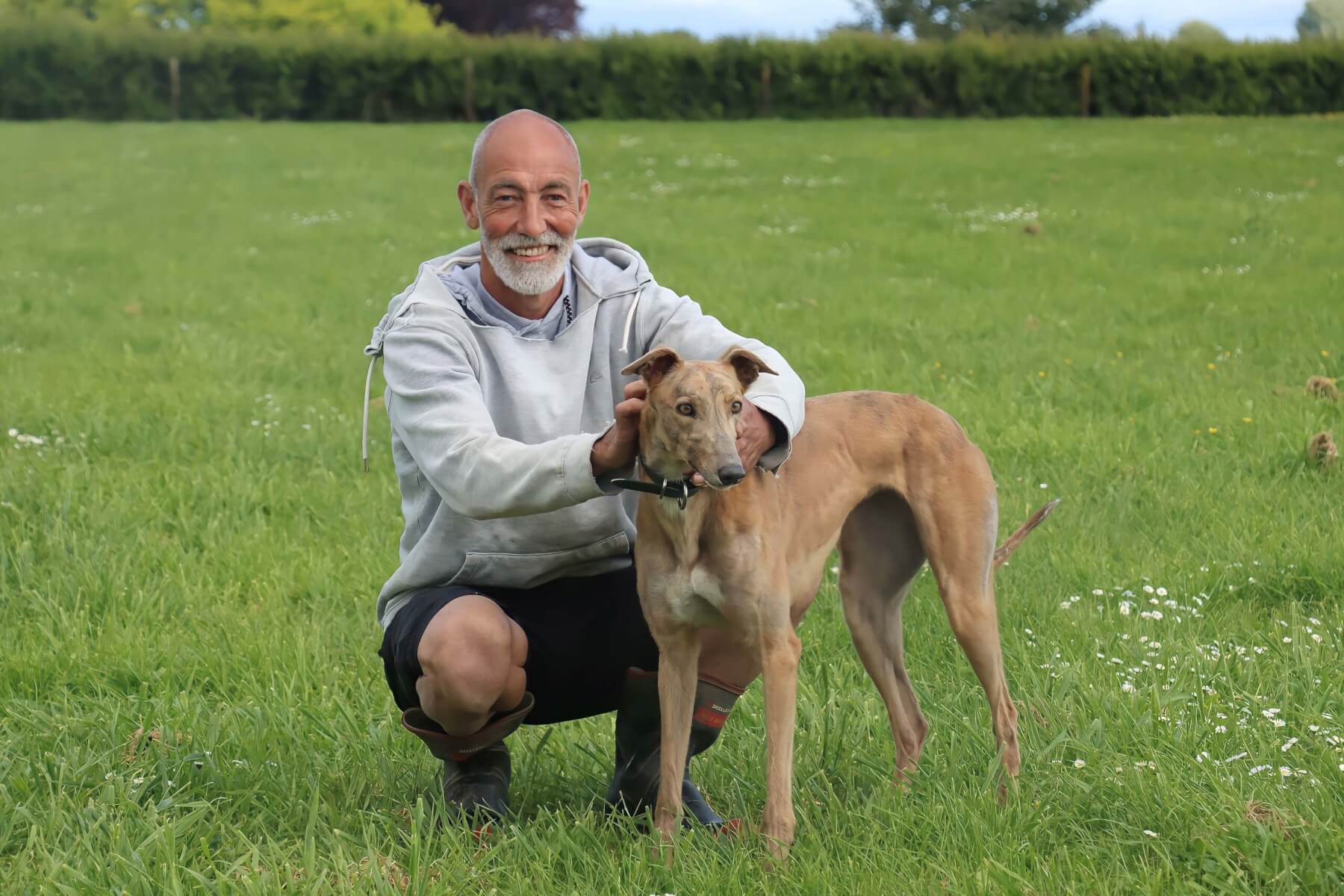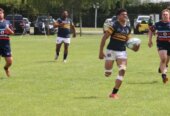
Wayne Steele, with one of his racing greyhounds, Amber. Photo: Jeremy Smith
Claims greyhound racing is animal cruelty and a blood sport which belongs in the past hurt everyone in the industry to their core, a prominent Waikato trainer says.
Te Awamutu’s Te Mawhai Racing Kennels owner Wayne Steele was commenting on the views of four protesters who were at a Cambridge meeting recently.
He said the best way to refute the protesters’ claims was “to get the right information out there”.
Steele said the industry saw animal welfare as paramount and his message to protestors was “do some research”.
“I want common sense to prevail.”
Steele has run Te Mawhai Racing Kennels near Te Awamutu with his wife Tracy for more than 25 years.
The Greyhound Racing New Zealand board member races his own dogs, and trains them for other owners.
He has 40 dogs under his care and 18 are racing. Some are retired and live with him.
Greyhound racing in New Zealand is a $92 million industry which employs 800 people and has 40 registered trainers.
New Zealand is one of eight countries in which greyhound racing is seen.
Races are held at tracks in centres which include Cambridge, Whanganui, Palmerston North and Christchurch.
“I was born into greyhound racing,” Steele said.
“My dad had dogs and I got involved in the industry myself as a teenager.”
Wayne and Tracy’s son Corey is now the third generation to be involved in greyhound racing.
“I’m involved because I love the dogs and I joined the board five or six years ago because I felt it was important to have a role to play in our industry’s future.
“Greyhound racing is honestly one of the most regulated industries in New Zealand when it comes to animal welfare – everything from kennel sizes to the way we transport dogs to the races, is monitored.
“As owners – both collectively and individually, we are doing all we can – and taking steps – with the best for our dogs in mind.
“All the trainers and owners I know just really love their animals, full stop. And you get that satisfaction by figuring out how to get the best out of them.”
He said he didn’t know of any trainer “…who wouldn’t invite you to their place to see everything regarding how they do what they do”.
Significant steps had been taken in recent years by the industry, one of those being a programme to house dogs after their racing days, he said.
He said about $6.5 million of roughly $11 million in stake money received by the industry every year was put towards rehoming costs.








